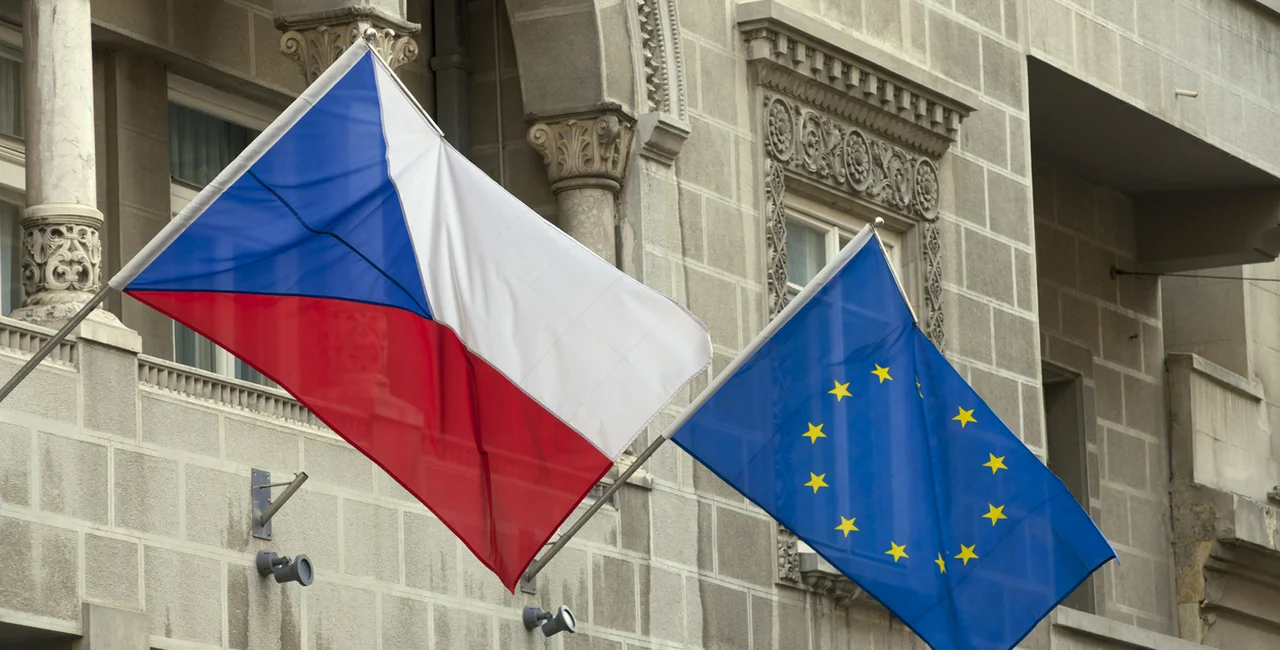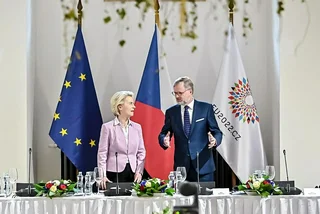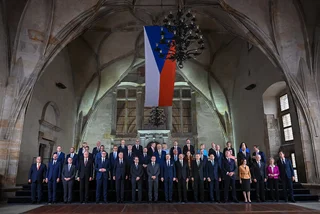Czechia’s six-month presidency of the Council of the EU is coming to an end, and has received plaudits from international observers for its accomplishments and leadership.
Czechia took over the role in July and has since been responsible for “driving forward the Council's work on EU legislation,” “ensuring the continuity of the EU agenda,” and “chairing meetings in the Council.” Prior to beginning its presidency, the country set out to manage the Ukrainian refugee crisis, bolster energy security, and reinforce the resilience of Europe’s economy, according to the Council of the EU website.
Shortly before Christmas, European Commission Vice President Věra Jourová stated that Czechia’s presidency had been a “big success” and also a “big investment in the future,” ČTK wrote.
SOME HIGHLIGHTS DURING CZECHIA'S PRESIDENCY
- EU states agreed to provide EUR 24 million worth of financial aid to Ukraine.
- The distribution of EUR 20 billion from the RePowerEU package for the diversification of European energy was approved.
- A provisional deal on parts of the environmental "Fit for 55" package, such as the creation of a social fund, was agreed to.
- Caps on wholesale gas prices on the EU market were passed after multiple meetings convened.
- The EU budget for 2023 was greenlighted.
- Czechia held a two-day political summit in Prague.
- Sanctions on Iran introduced and on those Russia strengthened.
"The Czech EU presidency showed [Czechia's] firm, down-to-earth position, and that it is a very strong player and negotiator with great diplomatic erudition, and a country that should keep its voice strong even after its presidency ends," Jourova posited.
A range of achievements
During its tenure, Czechia was able to lead the passage of price caps for gas on the EU’s main trading hub after much resistance, co-ordinate humanitarian, financial, and military aid to Ukraine, and play an important role in negotiations on EU expansion in the Western Balkans – also instructing countries in the area to help curb illegal immigration.
The website of Czechia’s presidency notes success in passing through a new, EU-wide package worth EUR 20 billion (CZK 484 billion) as part of the “RePowerEU” plan to deliver sustainable energy, safeguard Europe’s economy, and reduce dependence on Russia.
Under Czechia’s presidency, important elements of the “Fit for 55” environmental plan – designed to reduce the EU’s greenhouse gas emissions by 55 percent by 2030 – were also provisionally agreed to. Aside from introducing new rules for emission allowances in aviation and cars, nations also agreed to a new “social climate fund” that benefits the most vulnerable households at risk of energy poverty.
✅◠Achievements of #EU2022CZ in foreign affairs
— EU2022_CZ (@EU2022_CZ) December 21, 2022
👉 The Czech Presidency has successfully undertaken its difficult task also in the field of foreign affairs.
👉 You can read about the achievements here ➡ https://t.co/oJGwjOivXY pic.twitter.com/ZVFN4QUKUR
Another Vice President of the European Commission, Frans Timmermans, sang his praises when assessing Czechia’s presidency. “The Czech EU presidency has been one of the most successful in past decades, having managed to bring very complicated talks on the key climate package to an end,” ČTK reported him saying in December.
"I have rarely seen a presidency that was more successful, more purposeful, and more professional." - European Commission Vice President Jan Timmermans
Another notable achievement of Czechia’s presidency has been drawing up the so-called Artificial Intelligence (AI) Act, which aims to reduce the risk of AI machines and affirms and affirms that they must respect “the right to privacy and transparency.”
On the theme of digitalization, Czechia led the Council to adopt a common position on a European “digital identity wallet,” designed to simplify person-to-institution communication.
📲 #TTE | 👠EU Ministers agreed on a mandate for negotiations with @Europarl_EN on the European digital identity (eID)!
— EU2022_CZ (@EU2022_CZ) December 6, 2022
Citizens and businesses will be able to use public and private services online through a digital wallet.#EU2022CZ
More ⬇ï¸https://t.co/gUVQYGZKHH pic.twitter.com/9zFbzvaGuG
Czechia's presidency also saw official pledges made to develop Europe's Trans-European Transport Network – on which countries' rail lines operate – by making it faster and more interconnected.
The Czech Republic also led EU countries in adopting the European Defense Industry Reinforcement through common Procurement Act (EDIPRA), which increased the scope of joint purchases of military equipment for the current Russia-Ukraine conflict. It also launched an EU-military assistance program allowing Ukrainian soldiers to train on EU land, with Czechia being the first country to host and train Ukrainian soldiers.
President of the European Council Charles Michel and European Commission Head Ursula von der Leyen similarly praised Czechia. Michel noted that there had been “no doubts” that the Czechs would be efficient and appreciated “the way Czech representatives behaved during the presidency,” ČTK reported. Von der Leyen praised the “excellent cooperation” of the Czech Republic.
"We have maintained a strong, united, and principled position of the EU in the world." - Minister of Foreign Affairs Jan Lipavský
Furthermore, the recent expansion of the Schengen area to include Croatia is a sign of Czechia’s abilities: it was “a huge success and the culmination of our work throughout the presidency,” said Interior Minister Vít Rakušan in a government press release, having been “one of the priorities” of Czechia’s tenure.
Deník N said that Czechia positioned itself as an “honest broker” during its presidency and “grew up” in the past six months. British media outlet The Financial Times similarly commended Czech politicians for being “hard workers” and good negotiators on an EU level.
At home, mixed reviews and poor communication
Despite largely positive reviews of the Czech presidency, the Czech public gave Czechia’s six-month tenure an average score of three on a scale of one to five (five being the worst), according to a recent poll by the Median polling agency as cited in ČTK.
"Unfortunately, the government did not use the potential of the presidency in the context of communicating European affairs to the public." - Aneta Zachová, Deník N.
Supporters of parties currently in government were far more likely to give the country a higher score, whereas those backing the opposition (such as the Freedom and Direct Democracy party and ANO movement) predominantly gave lower scores, with 25 percent of ANO voters giving a score of five.
Political scientists argue that, despite its achievements, the government did poorly in informing the public about its actions at the EU level.
Georgia Wright of Paris think-tank Institut Montaigne said that “only few outside the EU bubble would link these successes to the Czech Republic and few would understand the influence Czechia has on the shape of the EU,” ČTK reports.
Sweden takes over the reins from Czechia on Jan. 1st, 2023, and international consensus shows that Czechs can be proud of how the country managed its presidency. As Prime Minister Petr Fiala summarizes, the Czech Republic “has a strong voice in Europe.”












 Reading time: 5 minutes
Reading time: 5 minutes 







 English
English
 French
French
 Finnish
Finnish
 German
German























